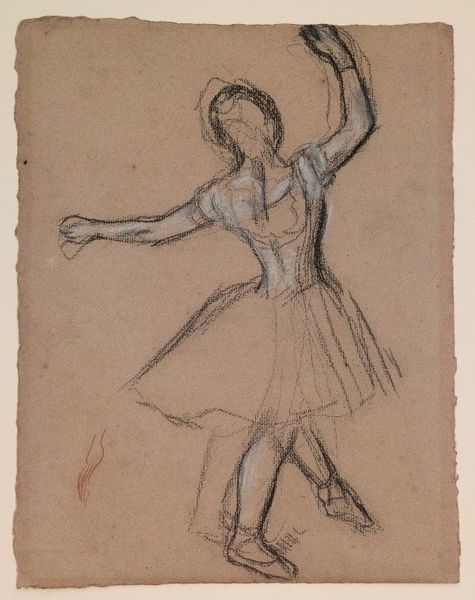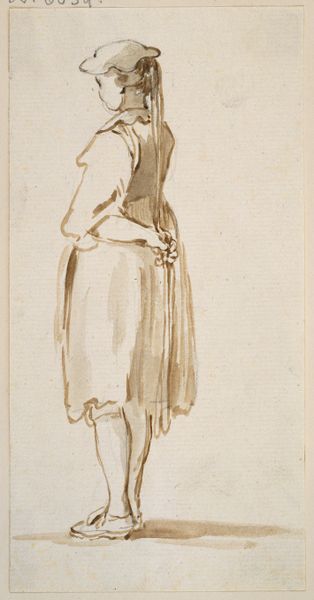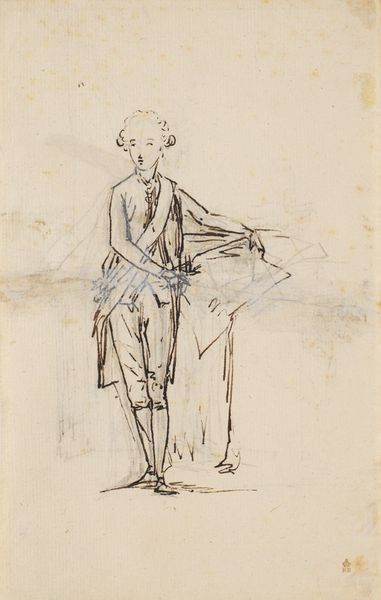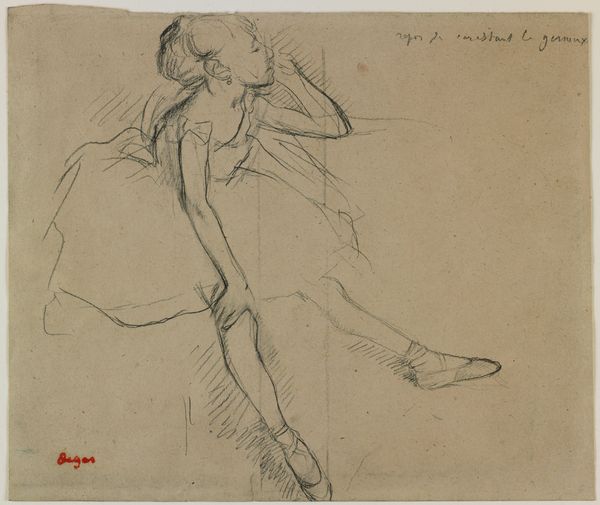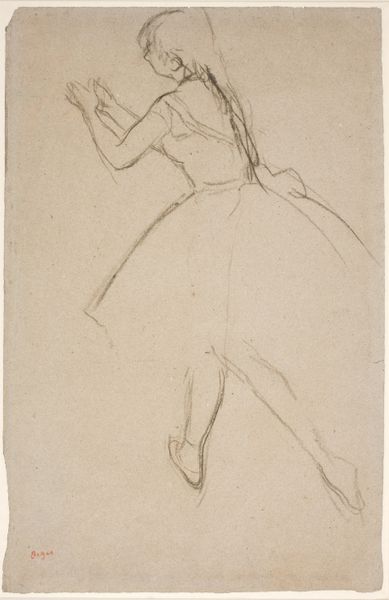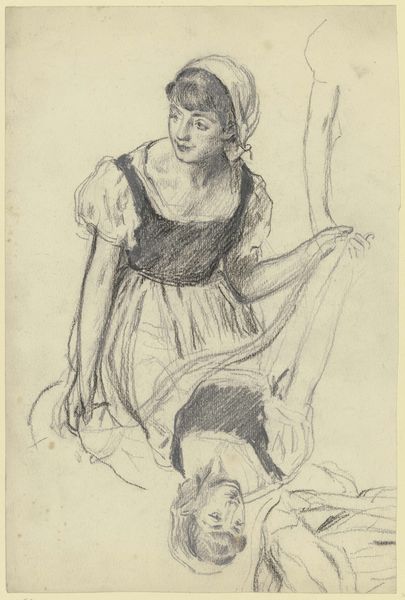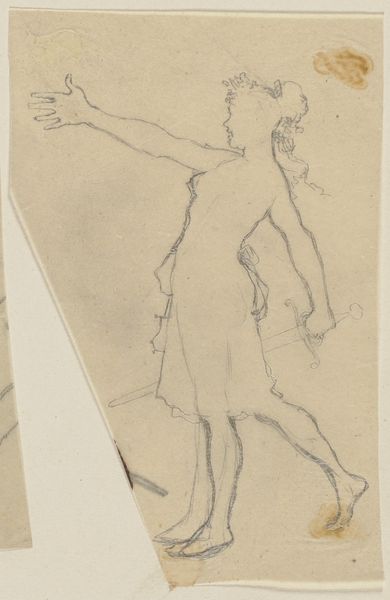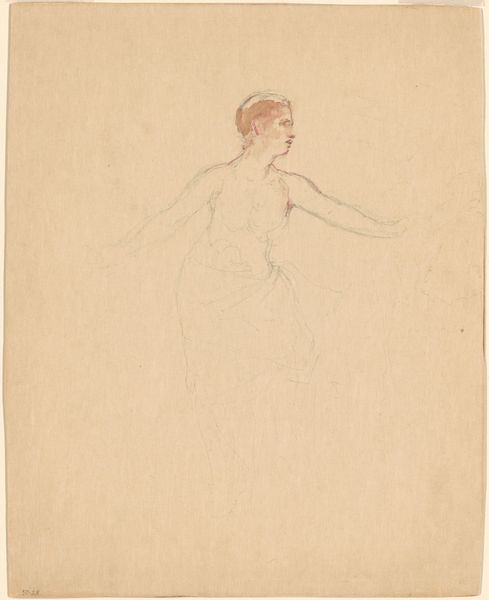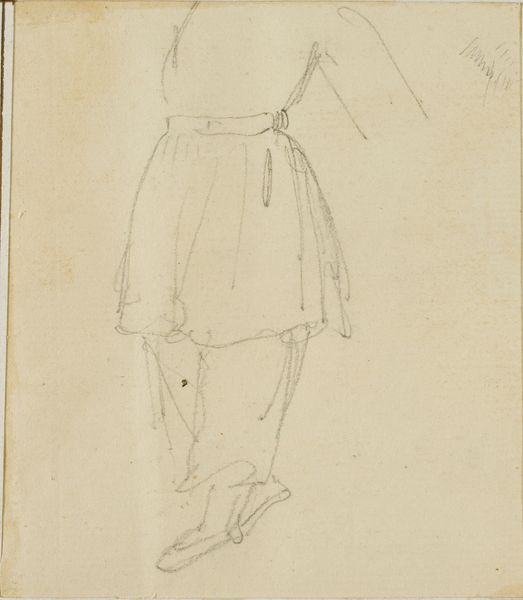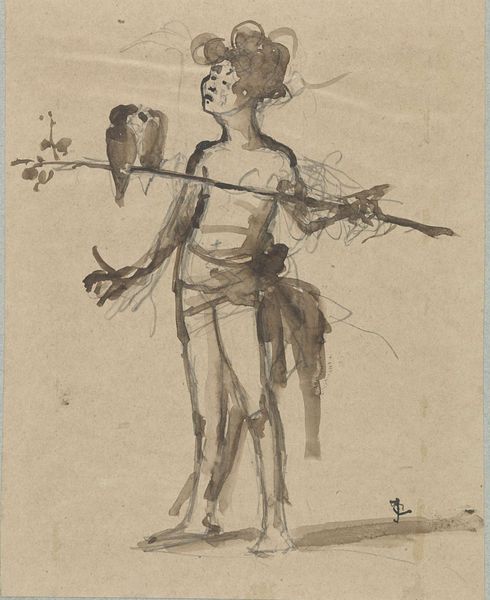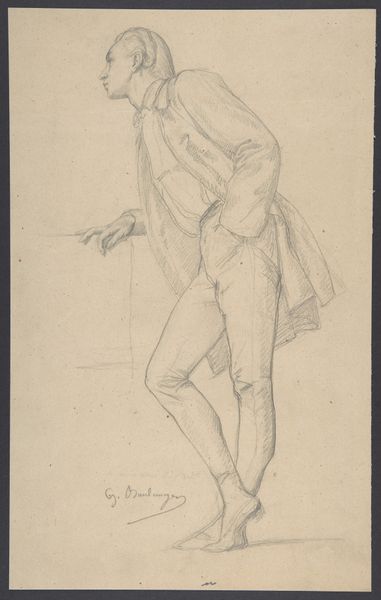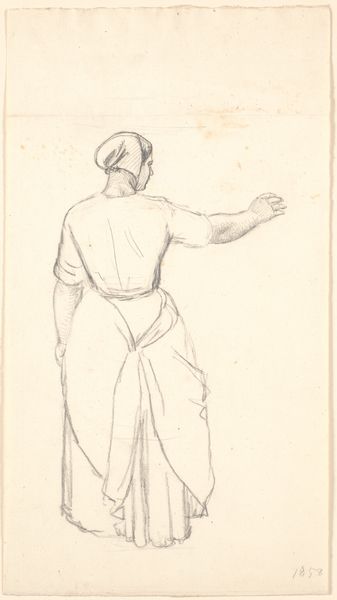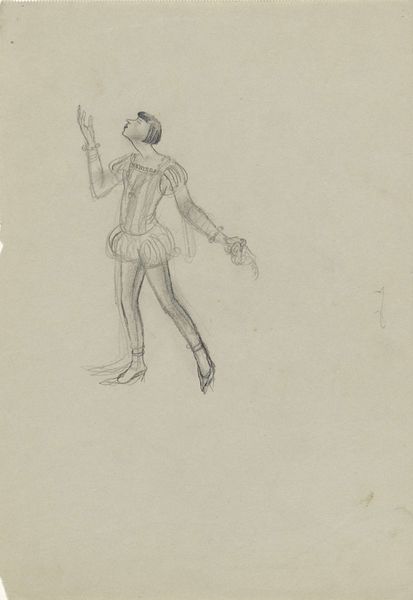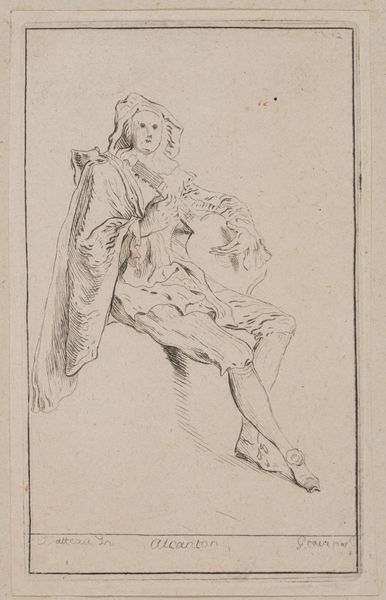
drawing, print, paper, pencil, charcoal, pastel
#
portrait
#
drawing
# print
#
impressionism
#
pencil sketch
#
figuration
#
paper
#
pencil
#
charcoal
#
pastel
#
nude
Dimensions: 320 × 244 mm
Copyright: Public Domain
Editor: We're looking at Edgar Degas' "Dancer at the Bar (on Point)," likely created around 1885, using pencil, charcoal, and pastel on paper. The sketch feels so immediate and captures a private moment. What do you make of Degas' focus on ballerinas? Curator: Degas' fascination with ballet dancers transcends mere aesthetic appreciation. Ballet in 19th-century Paris was deeply embedded in a complex social fabric. It was public spectacle, of course, but behind the scenes, the lives of the dancers, often young women from working-class backgrounds, were closely interwoven with wealthy patrons and the power structures of the Opéra. Editor: So, he’s not just painting pretty pictures, is he? Curator: Precisely. He's offering a glimpse into this hidden world, exposing the often-uncomfortable realities of these women within a system that both elevated and exploited them. Think about how he positions them, frequently off-center, caught in rehearsal, revealing their exhaustion and the sheer physical labor involved. The fleeting quality of impressionism contrasts with the rigid discipline enforced upon them. Does this contrast give the work additional layers? Editor: It does. It highlights the controlled yet precarious lives they lead. I hadn't thought of the sketchiness as a commentary itself. Curator: Exactly. Degas isn't just interested in capturing movement; he is subtly questioning the institutions that shaped these dancers' lives and shaped Parisian culture more broadly. Editor: So it’s like, art commenting on society at the time. Now I see more depth and makes me rethink my initial assessment of the artwork.
Comments
No comments
Be the first to comment and join the conversation on the ultimate creative platform.
